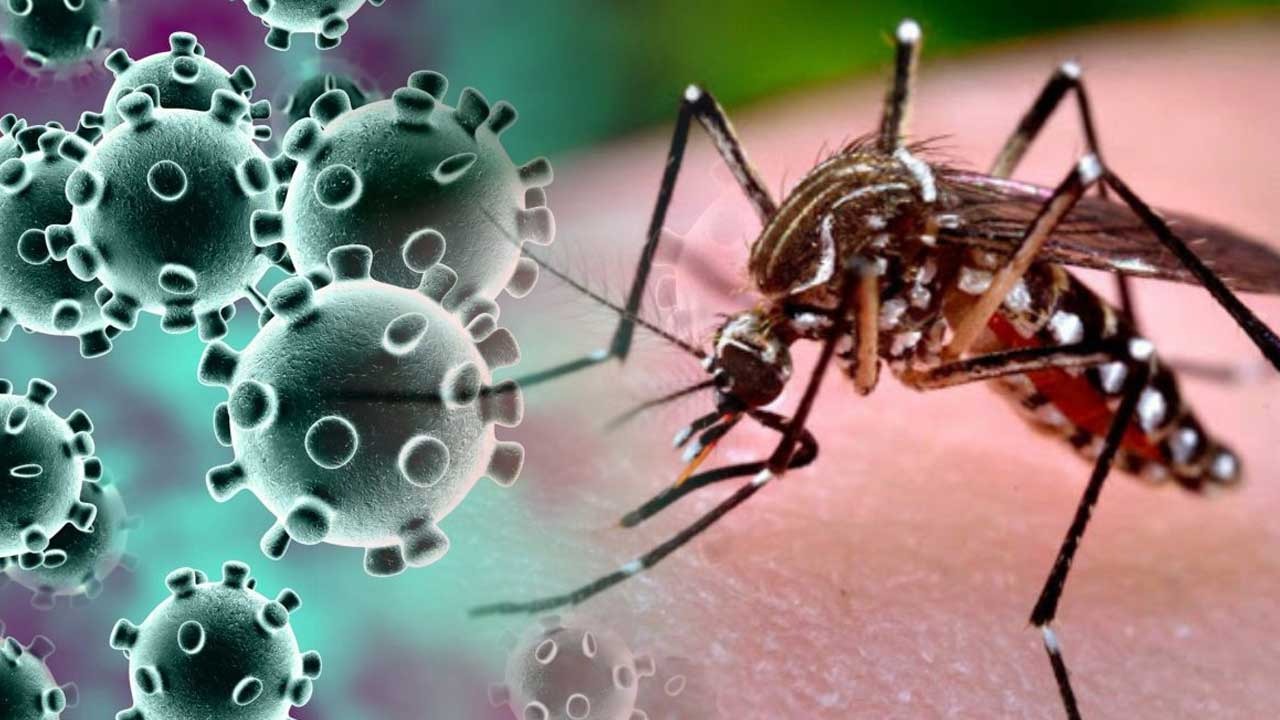India is already fighting with the second wave of deadly coronavirus cases. And we are not in a mood to battle any more vector-borne epidemics like dengue and malaria. However, as the monsoon arrives, the risk of transmission of these tropical vector-borne diseases also increases. The matter of concern is that patients infected with the novel coronavirus are now facing threats from dengue and malaria as well.
It is very difficult to differentiate between all three as they share same characteristics and symptoms.
Symptoms of dengue – It is a mosquito-borne viral infection having symptoms like high fever with severe headache, muscle and joint pain coupled with nausea, vomiting, and diarrhea.
Symptoms of Malaria – Malaria is caused by a mosquito plasmodium parasite bite. It’s a parasitic infection. This includes symptoms like fever with shivering, chills, headaches, and vomiting, and occasional seizures, and sweats.
Symptoms of COVID 19 – It is a viral infection that spread through droplets while a patient with this infection sneezes, coughs or talks without wearing a mask. The symptoms include fever, dry cough aches, and pains with tiredness, sore throat with headache, diarrhea, difficulty breathing, or shortness of breath.
All three diseases have some symptoms that overlap like fever and headache. The coinfection of all three diseases is emerging as a big challenge. Correct diagnosis is very important for further treatment procedures. There have been cases of misdiagnosis due to false-positive results. As per the expert “The main pillars to control the two major arthropod-borne infections in tropical areas have been preventive measures such as vector control, protective measures, and surveillance. But the pandemic has posed a challenge in terms of restricted availability and movement of human resources. This has adversely impacted the much-needed vector management activities. Keeping the situation in mind, the roadmap has to be structured.”
Diagnostic test
In this situation, the need of the hour is to have a rapid test kit that can precisely distinguish between these three. Dengue can be diagnosed in two ways – rapid test and ELISA test. The government has only given recognition to the ELISA test. However private clinic doctors are doing the rapid test to diagnose dengue and further doing the treatment. District hospitals are doing ELISA tests. Because all this chaos is creating confusion among the general public. People should get themselves tested if they find any symptoms in hospitals and should maintain transparency.
A rapid test kit at home for COVID is also available in the market that gives precise results and is linked to the government website directly. This keeps any kind of confusion away.
People should follow general guidelines for malaria and dengue prevention
preventing the accumulation of freshwater wearing clothes covering arms and legs using mosquito nets and repellents the screen on windows and doors cover water containers tightly or use a chemical larvicide to prevent the breeding of mosquitoesCOVID protocol
Maintaining Social distancing Wearing mask Hand hygiene or use of sanitizersThe cases of coinfection of dengue, malaria, and COVID will be peak during monsoon, hence we have to be well prepared with effective mosquito control strategies and COVID protocols.

 The symptoms of Malaria, Dengue, and COVID are very much similar to each other. The onset of monsoon has increased the risk of these conditions that can lead to coinfection. Follow proper guidelines to live a happy monsoon
The symptoms of Malaria, Dengue, and COVID are very much similar to each other. The onset of monsoon has increased the risk of these conditions that can lead to coinfection. Follow proper guidelines to live a happy monsoon


































